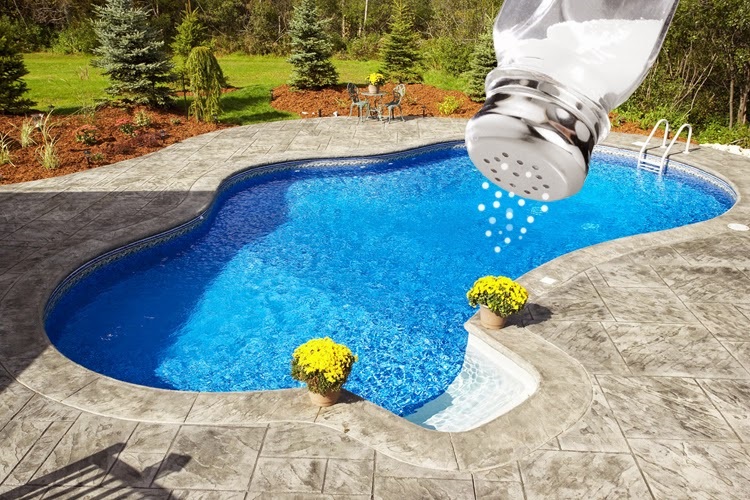As the summer heat rolls around, so does the age-old debate between which pool option is better: saltwater or chlorine. What it really comes down to is your personal preferences on things like how big of an investment you’d like to make and how much routine maintenance you want to be responsible for. To help you decide which option better fits your lifestyle, here are the pros and cons of both saltwater pools and chlorinated pools.
Chlorine Pools
The most popular types of pool on the market are chlorinated pools – such as these in-ground gunite or fiberglass pools designed and built by Premier Pools & Spas – which require the addition of chlorine by way of liquids, sticks, or tablets. Maintaining healthy chemical levels is an essential part of keeping your pool safe for swimming throughout the season and year-round.
The Pros
When it comes to the initial investment, chlorine pools are much easier on the bank account than its saltwater counterpart. Additionally, you’ll conserve dollars on your monthly utility bill with a chlorine pool as it consumes less electricity than a saltwater pool that’s powered via a generator. Because chlorine pools can safely support added pool features and won’t negatively affect landscaping, you will be able to exercise some creativity when it comes to building any pool renovations that’s designed to fit your personal tastes.
The Cons
Because these pools contain a higher concentration of chlorine, your family and guests may have adverse reactions to the chemicals – such as dry skin or irritated eyes. There is some frequent maintenance required for chlorine pools, as the chemical levels must be balanced, and will require you to consistently add chlorine to the water. Subsequently, this means shelling out additional dollars on chemicals and learning how to properly store these ingredients so they are safe and ready for use. For homeowners who want to reduce their footprint with an environmentally-friendly option, then a chlorine pool may not be the best option for you due to the use of chemicals.
Saltwater Pools
Contrary to popular belief, saltwater pools do contain chlorine. However, instead of being added via chemical means, the chlorine is produced from the salt molecules in the water. Another misconception is that installing a saltwater pool will equate to a refreshing swim in the ocean. In reality, saltwater pools are only 1/10th as salty as ocean water.
The Pros
With minimal chlorine levels, saltwater pools are much easier on the body, even leaving some swimmers will softer skin after diving in. Not only does the smaller chlorine amount save your favorite swimsuits from fading, but it also means less maintenance than a chlorinated pool. That means after a long hard day at the office, you can spend less time fussing over chemical levels and more time sprawling out on a float, enjoying some R&R. Saltwater pools offer a more environmentally-friendly option than chlorine pools and some of the better generators can last an impressive two weeks without needing any attention.
The Cons
The investment required to install a saltwater pool is much heftier than a chlorine pool. Saltwater pools also consume more electricity, which may cause a spike in your monthly utility bills. While salt is beneficial for your skin, it can be quite damaging to landscaping and equipment, such as underwater lighting, pool deck, or heaters. Another notable con is the level of difficulty associated with maintaining chlorine levels, which can sometimes be tricky due to the strength and volume of salt in the water.
Since saltwater pools and chlorinated pools both have their pros and cons, the winner will ultimately be based on your individual preferences and what option best fits your desired lifestyle.
